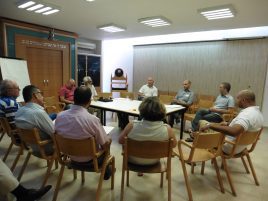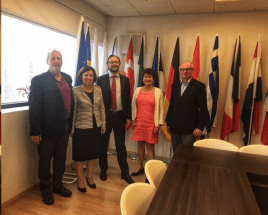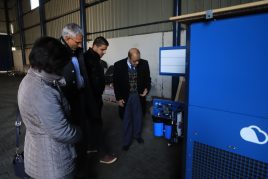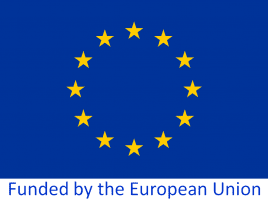The Center for Applied Environmental Diplomacy will contribute to the creation of a more stable and resistant Middle East, help restore confidence in future political negotiations, and in the future will also serve as an inspiration to other conflict areas in the world.
Dr. Tareq Abu Hamed, Arava Instititute Executive Director

Founding members of the Center’s International Advisory Council include Ambassador Dennis Ross, Former Special EU Envoy to the Middle East Marc Otte, Prof. J.M. Hall, Oxford University Professor of Climate and Environmental Risks, and Richard Caplan, Oxford Professor of International Relations.

The Center, in partnership with the Oxford Martin School Programme on Transnational Management of Natural Resources, proposes the development of a new branch of diplomacy. Applied Environmental Diplomacy is being developed as a feedback loop using environmental tools to alleviate conflict situations and using diplomatic tools to resolve environmental crises.
At the Center, Israelis, Palestinians, and Jordanians will work in partnership with Oxford University to conduct joint academic and research activities to develop this field, and at the same time, demonstrate its application through the implementation of practical reality-changing projects in Israel, Jordan, the West Bank, and Gaza. The Center will provide a safe space to host researchers, community leaders, diplomats, entrepreneurs and government representatives for meetings, networking and project development, security, public health and sustainable economic development. It will work with regional environmental departments and institutions, such as the Porter School of Environmental Studies, and the Dead Sea & Arava Science Center.

The Center for Applied Environmental Diplomacy will build on the first ever in-depth regional modeling and forecasting of natural resources, particularly energy and water, undertaken over the past three years by Oxford and leading scientists from Israel, Jordan, and the Palestinian Territories. Accessing never before seen data and agreeing on methods of collection, analysis and projection, the team is already publishing results on regional energy, water, health, national security and more. This modeling will provide easily understandable and reliable information and offer policy makers concrete strategies and pragmatic, manageable options for cross border projects.


